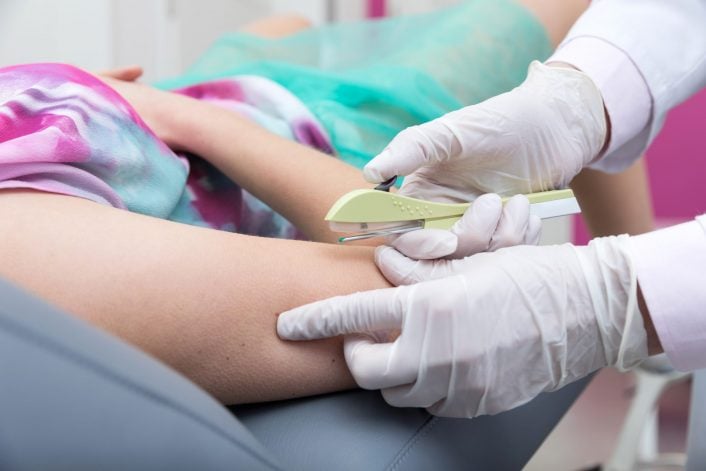
What is it?
Long-acting contraceptives are birth-control devices that stay in your body for a long time (from one month to ten years). There are three types of long-acting contraceptives:
- Contraceptive injection - an injection given by your GP that provides protection against pregnancy for twelve weeks
- Contraceptive implant - a small, flexible rod put under the skin of your upper arm. It can stay there for up to 3 years. It slowly releases a progestogen hormone into your bloodstream.
- Intra-Uterine Devices (IUDs) - small, flexible devices fitted into the uterus (womb), and include:
- Copper IUDs made from plastic and copper; they have no hormones and need to be replaced every 5-10 years, depending on the type you use
- Hormonal IUDs are small, T-shaped devices that slowly releases a very low dose of progestogen hormone into the uterus; it can stay there for up to 5 years
What will my GP do now?
Your GP will discuss your medical history and personal preferences. Together you will work out what type of contraceptive is best for you.
During these discussions your GP will:
- Suggest a pregnancy test to ensure you are not pregnant
- Discuss other common side effects
- Provide you with clear information for your contraceptive choice
- Discuss practicing safe-sex to prevent sexually-transmitted infections (STIs)
- Make sure you are up to date with your cervical screening
If you are planning on getting an IUD or implant, your GP will:
- Explain the expected bleeding patterns after insertion of an IUD or implant
- Explain how, when and where your device or implant will be inserted
- Suggest using an additional contraceptive for a short while following insertion
Your GP may not have trained to insert your device or implant. In this case, they will refer you to a clinic with health professionals trained in insertion and removal. You will need to complete some paperwork to consent to the procedure.
What will my GP do in the future?
You may not need to see your GP for regular follow up. However, if you do, your GP may:
- Follow-up with a physical examination to check that your device is properly inserted
- Periodically check your weight and blood pressure
- Recommend a test for sexually transmitted infections
- Want to know if have any trouble with your contraceptive, such as any side effects
When it is time to remove or replace your IUD or implant, your GP may refer you to an appropriate clinic or healthcare professional.
What can I do?
Tell any health professional who treats you that you have an implant or IUD. Keep a record of your bleeding patterns if you are concerned. Tell your GP about any abnormal discharge, bleeding or pain.
If you have had an IUD inserted, regularly check the position of your device to make sure it has not dislodged. Your GP can explain how to do this.
